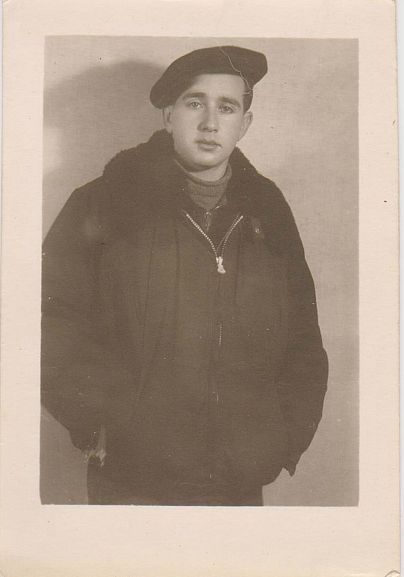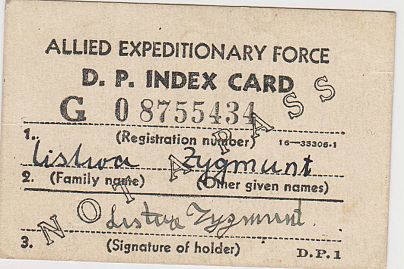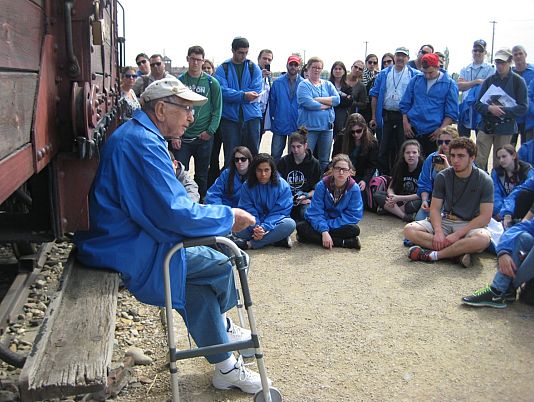Siegmund Listwa had spent five and a half years in concentration camps during World War II, including two years at Auschwitz. This week marks 75 years since the Nazis’ most well-known extermination camp was liberated by the Soviets.
When 17-year-old Siegmund Listwa was liberated from a Nazi death march by U.S. forces in 1945, he made his way to Prague to catch a train back to his native Poland.
When he reached the Polish border a few weeks after the war, he was warned by people at the train station that Jews were not welcome there.
“I didn’t know what happened to my town and my parents. I got a bike. I pedalled to Prague. I wanted to go back to Poland. As I go to the border on the train, they told me not to go back to Poland because they’re going to kill you,” Listwa said.
“So I went back to the American zone. I had to wait four years until I came to the United States.”
Listwa had spent five and a half years in concentration camps during World War II, including two years at Auschwitz.
This week marks 75 years since the Nazis’ most well-known extermination camp was liberated by the Soviets.
Of the 1.3 million people who arrived at Auschwitz, 1.1 million people died. Roughly 90 per cent of them were Jewish.
Read more: The history of the Holocaust is being re-written - and historians are fighting back
Rising antisemitism in Europe
Before World War II, more than half of the world’s Jewish population lived in Europe.
An estimated 6 million Jews died in the Holocaust, and today it is estimated that just over one million Jews live in the European Union with many having emigrated to Israel and the United States.
“I was born in Poland, my parents, my grandparents, yet I was treated as a second citizen. When I see what goes on now in France, in England, in Belgium, I get goosebumps,” he said.
A 2019 EU survey found that nearly half of young European Jews face anti-Semitic harassment. Recent anti-Semitic incidents including a shooting at a synagogue in Germany and the defamation of Jewish graves in France have people worried about rising antisemitism in Europe.
A Holocaust survivor shares his story
Listwa arrived in Auschwitz in August 1943 as a teenager and was sent to work in a coal mine as part of the Nazi slave labour system to support German industry during the war.
He was abused by the guards, was forced to shovel coal for 8-9 hours a day, and survived multiple selections sending people back to Auschwitz to be killed.
Despite breaking his ribs as the coal mine collapsed, he wasn't killed and went to work in the hospital.
But 75 years ago in January 1945, as the Soviet army approached the camp, the Nazis evacuated prisoners from Auschwitz.
Listwa was one of the prisoners forced on a death march through then-Czechoslovakia all the way to Flossenbürg camp in Germany.
Thousands of Jews died during the death marches where people were shot and killed or starved while marching in horrific conditions.
‘We take everything for granted’
Listwa lost his parents and two sisters in the Holocaust and says he is still surprised that he survived. At 93-years-old, he wants to keep sharing his story so that history doesn’t repeat itself.
“We take everything for granted when everything can collapse overnight. Look at what happened to me,” he said.
In 2014, he returned to Auschwitz to share his story with Jewish students. But he says he doesn’t trust politicians to protect future generations and worries about growing anti-Semitism.
According to the Anti-Defamation League, Jews faced “near-historic” levels of antisemitism in recent years in the US. In 2017, the group counted almost 2,000 anti-Semitic incidents in the country.
“I am not so free from fear … I feel change. I don’t trust the system now. I lost confidence in our government of the United States. I lost confidence in our leaders,” he said.














